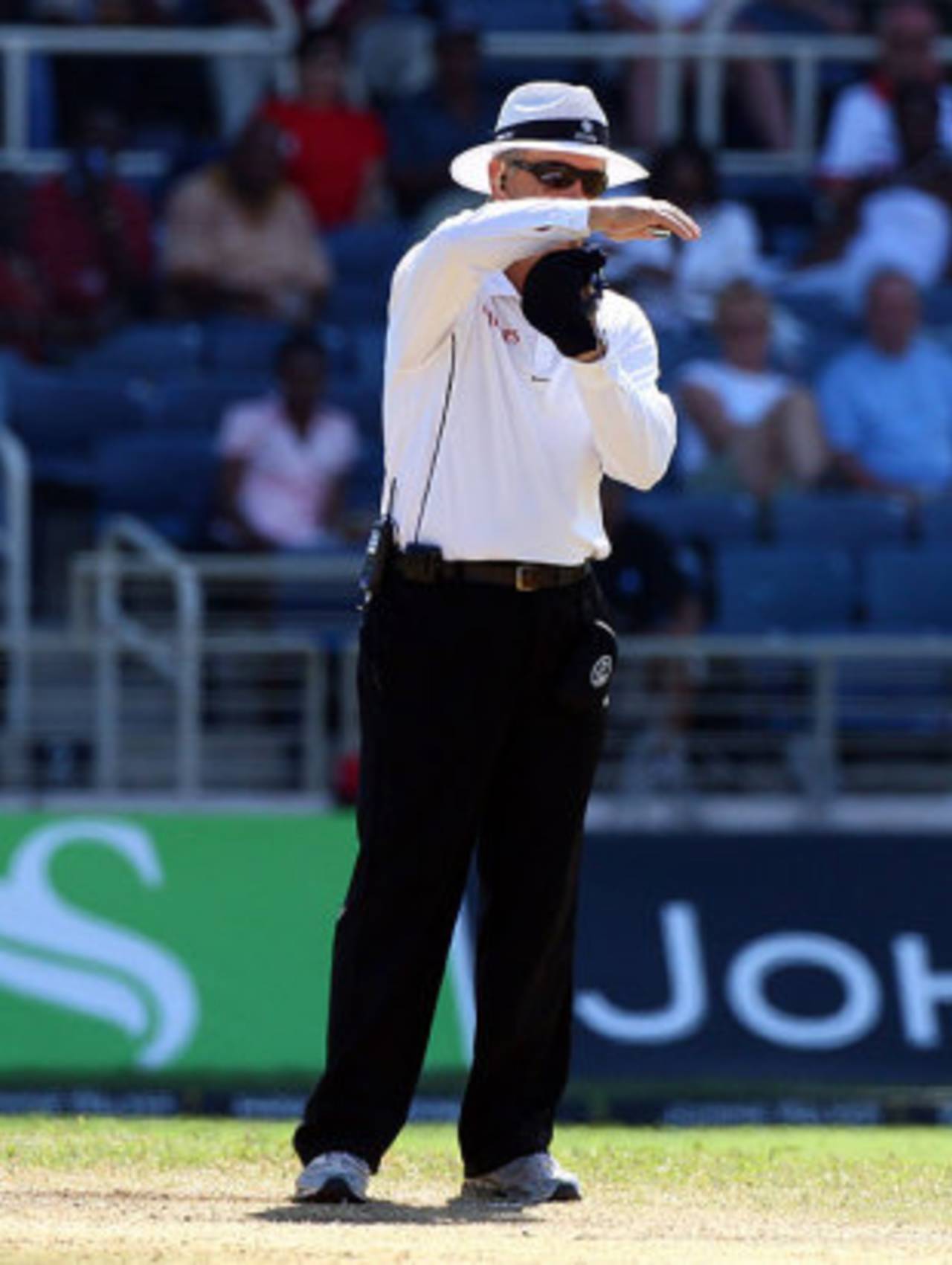Kumar Sangakkara, the Sri Lanka captain, has asked the ICC to step in and make the Umpire Decision Review System (UDRS) mandatory for all Test series, following India's
refusal to use it for the upcoming series. Sangakkara also said the ICC should perhaps pay for the technology needed to implement the system successfully, because it is something the ICC wants to introduce and the broadcasters have usually paid exorbitant monies for their rights and might not be able to afford extra costs for sophisticated tools such as Hot Spot.
"I was under the impression that the ICC has set the standards on this by saying that everyone should use the DRS system," Sangakkara said, suggesting he was not aware of the results of the latest discussion on UDRS at the ICC's annual conference. "I think last year in India also, the entire team felt a little hard done by when we came to know that we couldn't have the DRS."
The ICC's
directive, too, was as ambiguous as the body's role is in international cricket. "The host member would determine whether to use DRS in home Test series (following consultation with the visiting country)," said the ICC release, in one sentence giving the home board the power to "determine" whether the UDRS should be used, and also empowering the visiting team to contest it.
"The role that ICC has to play here is to make sure that all boards are bound to have the DRS," Sangakkara said, "Rather than when one side refuses, the other side can't enforce the DRS, as is under the current playing conditions.
Sangakkara reiterated how the absence of DRS hurt his side on its tour of India ("It cost us close to 500 runs and lots of wickets"), and also how the presence of the same system proved to be an advantage when they hosted India in 2008. Then, Sri Lanka successfully challenged 11 decisions as opposed to India's one.
"There were of course complaints by the Indian team, which led to - I think - subsequent series' being played without the review system," Sangakkara said. "Having reviewed all the matches, there are flaws. You need Hot Spot and all, but even with the existing technology in place, we can still have a very fair DRS."
MS Dhoni explained his side's decision with what has been a genuine concern with the UDRS: why challenge decisions when the best available technology is not being used? "DRS is still not a 100 % correct system," Dhoni said. "We have seen that, in spite of having the DRS, not everything goes correct. Most of the teams have played a series under the DRS, so it is important now to come up with a foolproof plan. See what exactly works. In a bat-pad scenario, Hot Spot really works, it is close to over 98 % correct. Even on LBW decisions, we need to have something like that."
Which brings us to the present conundrum: Several broadcasters pushed themselves to the commercial brink to secure telecast rights, and they obviously hadn't budgeted for the extra cost to make the UDRS successful. Which is what makes the ICC's role important, because essentially the DRS is its baby. "That's another option [paying for the technology] maybe the ICC should look at," Sangakkara said. "Provide the technology, make everything standard, if the costs the exorbitant, subsidise the costs. These are all the things we can look at. Maybe the broadcasters - they of course pay such a lot for cricket, but they also make sure they earn almost as much - maybe they could work out ways of subsiding it."
